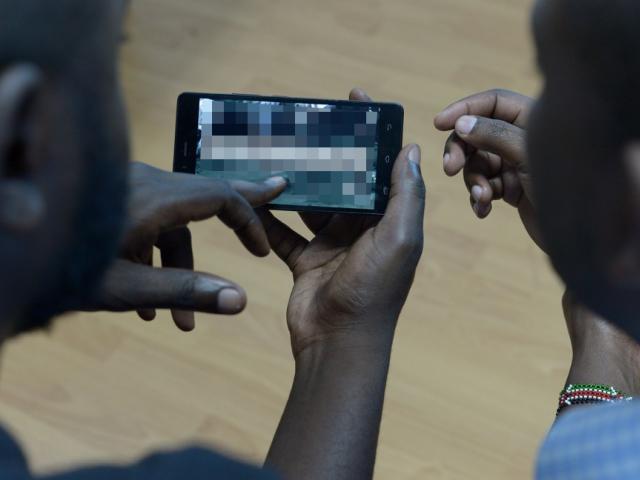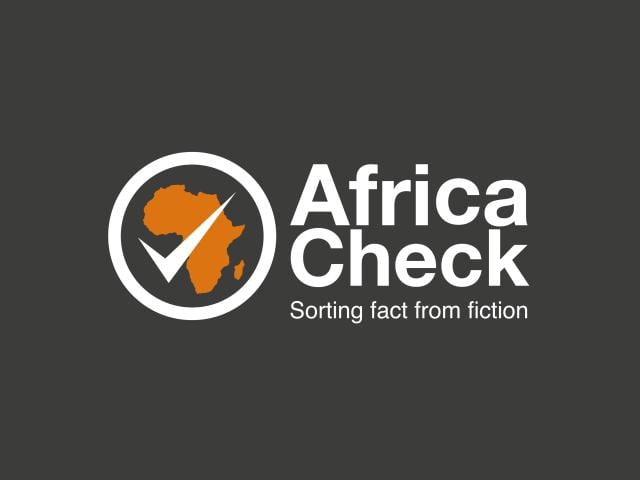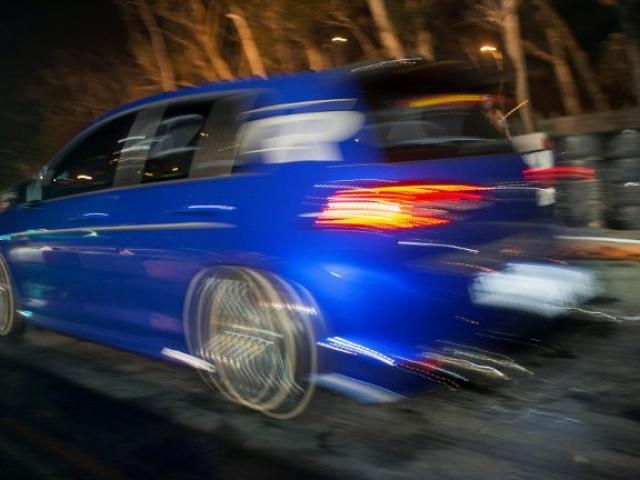#5facts: Getting around in SA
This article is more than 6 years old
As travel-happy South Africans firm up their vacation itineraries for the festive season, we got a sense of the road ahead.
The South African Roads Agency Limited (SANRAL) estimates the country’s road network at 750,000 km. This is according to data provided to Africa Check Louw Kannemeyer, SANRAL’s acting engineering services executive.
SANRAL controls 22,203 km, with the rest under the care of:
Nearly a fifth of South African roads (131,919 km) are unproclaimed, meaning they are public roads yet not formally gazetted by an authority.
These roads “exist as low-level roads generally in rural areas, but also some urban areas mainly as the result of farming operations and township development,” Malcolm Mitchell, who sits on the eThekwini Municipality's planning commission, told Africa Check.
Their extent was determined many years ago by the Council for Scientific and Industrial Research on a sampling basis, added Mitchell, a former deputy-director general in the transport department.
The great majority of South Africa’s roads remain gravelled, the data provided by SANRAL shows. When only proclaimed roads are considered, it stands at three-quarters (74%), rising to 79% when unproclaimed roads are included.
South Africa’s public transport mix consists of taxis, buses and trains. Of these, taxis are the most commonly used, according to Statistics South Africa’s 2016 General Household Survey.
In the week preceding the survey, 36% of surveyed households reported that at least one household member used a taxi for their commute.
Buses were used more than trains, with 6.7% of surveyed households across South Africa reporting having had a household member use them in the week leading up to the survey.
This mode of transport was the most used in Mpumalanga, at 17% of households.
Trains were most popular in the Western Cape with 10.5% of surveyed households having used them in the preceding week. This compares to a national average of 4.4%.
The majority of household members attending school walk there (66%), while 9.6% get there by a private vehicle and 9.3% by hired vehicle. Some 7.1% of students in surveyed households use taxis to get to school.
A third of surveyed respondents (33.4%) used private cars to get to work, while 23.3% used taxis. A fifth of respondents (20.7%) walk to work while 11.1% reported using none of these modes of transport to get to work as they work from home.
Ending on a sobering note, most crashes in which one or more people die, happen in December. The Road Traffic Management recorded 1,260 fatal crashes, resulting in 1,588 deaths, in December 2016.
The second highest month in 2016 was July when 1,189 crashes causing 1,402 deaths were recorded.
Additional reading:
https://africacheck.org/reports/is-male-chauvinism-to-blame-for-nearly-80-of-road-deaths-in-sa/
750,000 km of roads (more or less)
The South African Roads Agency Limited (SANRAL) estimates the country’s road network at 750,000 km. This is according to data provided to Africa Check Louw Kannemeyer, SANRAL’s acting engineering services executive.
SANRAL controls 22,203 km, with the rest under the care of:
- Provinces (272,821 km)
- Municipalities (256,914 km)
- Metros (66,143 km)
Nearly a fifth of South African roads (131,919 km) are unproclaimed, meaning they are public roads yet not formally gazetted by an authority.
These roads “exist as low-level roads generally in rural areas, but also some urban areas mainly as the result of farming operations and township development,” Malcolm Mitchell, who sits on the eThekwini Municipality's planning commission, told Africa Check.
Their extent was determined many years ago by the Council for Scientific and Industrial Research on a sampling basis, added Mitchell, a former deputy-director general in the transport department.
Most roads in SA gravel
The great majority of South Africa’s roads remain gravelled, the data provided by SANRAL shows. When only proclaimed roads are considered, it stands at three-quarters (74%), rising to 79% when unproclaimed roads are included.
Taxis most widely used public transport
South Africa’s public transport mix consists of taxis, buses and trains. Of these, taxis are the most commonly used, according to Statistics South Africa’s 2016 General Household Survey.
In the week preceding the survey, 36% of surveyed households reported that at least one household member used a taxi for their commute.
Buses were used more than trains, with 6.7% of surveyed households across South Africa reporting having had a household member use them in the week leading up to the survey.
This mode of transport was the most used in Mpumalanga, at 17% of households.
Trains were most popular in the Western Cape with 10.5% of surveyed households having used them in the preceding week. This compares to a national average of 4.4%.
Walking to school, driving to work
The majority of household members attending school walk there (66%), while 9.6% get there by a private vehicle and 9.3% by hired vehicle. Some 7.1% of students in surveyed households use taxis to get to school.
A third of surveyed respondents (33.4%) used private cars to get to work, while 23.3% used taxis. A fifth of respondents (20.7%) walk to work while 11.1% reported using none of these modes of transport to get to work as they work from home.
Most fatal crashes occur in December
Ending on a sobering note, most crashes in which one or more people die, happen in December. The Road Traffic Management recorded 1,260 fatal crashes, resulting in 1,588 deaths, in December 2016.
The second highest month in 2016 was July when 1,189 crashes causing 1,402 deaths were recorded.
Additional reading:
https://africacheck.org/reports/is-male-chauvinism-to-blame-for-nearly-80-of-road-deaths-in-sa/





Add new comment